Thinking about death is a normal part of life, but constant thoughts of suicide can be overwhelming, especially for those dealing with depression or mental health issues. Books on this topic, ranging from novels to self-help guides and personal accounts, can provide valuable insights into these challenging feelings.
It’s normal for some people to think about death or wish to escape life without actually planning to end their lives (known as passive suicidal thoughts). However, when thoughts of suicide become frequent and intense and involve a specific plan, it’s a serious risk that needs urgent help.
If you or someone you know is thinking about suicide, it’s essential to talk to a therapist or call the national suicide hotline at 800-273-8255 right away. In emergencies, call 911 immediately for help.
Books for Understanding Personal Struggles
Dealing with personal issues can feel lonely, but these books show that others have faced similar challenges. They offer hope and a sense of connection.

Darkness Visible: A Memoir of Madness, by William Styron
In this powerful memoir, Styron shares his descent into depression, providing a vivid and profound insight into the mind of someone battling with severe mental health issues. His narrative offers hope and understanding, showing that recovery is possible, even from the depths of despair.

Night Falls Fast: Understanding Suicide, by Kay Redfield Jamison
Jamison, both a psychologist and a person who has experienced manic depression, explores the subject of suicide with depth and compassion. Her book combines personal experience, clinical research, and historical analysis to shed light on this complex issue.
Books for Overcoming Loneliness
Feeling lonely can make it challenging to connect with others. These books remind you that you’re not the only one feeling this way and are not alone.

It’s Kind of a Funny Story, by Ned Vizzini
This novel, inspired by Vizzini’s own brief hospitalization for depression, follows a teenager’s journey through mental illness and the discovery that finding allies in the most unexpected places can make all the difference.

All the Bright Places, by Jennifer Niven
A poignant novel that explores the lives of two teenagers who meet on the ledge of the school bell tower, both contemplating suicide. Their story addresses the impact of mental health on young love and the beauty found in unlikely companionships.
Books for Teenagers Dealing with Mental Health and Suicide
Coping with the loss from suicide is challenging, particularly for teens who are already navigating numerous changes. Books that delve into teen experiences with suicide, depression, and suicidal ideation can provide comfort and a sense of understanding, making them feel less isolated during these difficult periods.

Thirteen Reasons Why, by Jay Asher
This novel takes readers through the tapes left behind by a high school student, Hannah Baker, for her peers to understand the reasons behind her decision to end her life. It’s a gripping narrative that encourages reflection on the effects of our actions on others.
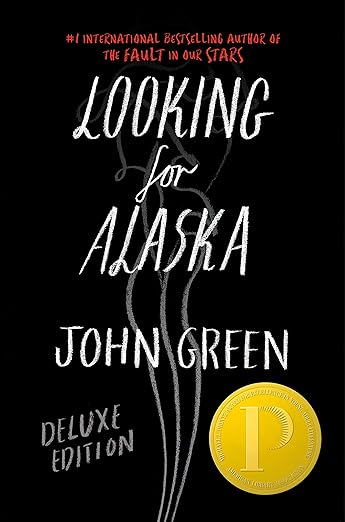
Looking for Alaska, by John Green
Green’s novel delves into the lives of boarding school students, focusing on themes of belonging, loss, and the search for meaning. It’s a story that resonates with young adults navigating the complexities of friendship, love, and grief.
Books for Grieving and Healing
Grieving a loss, especially from suicide, is a profound journey that can feel overwhelming. This section addresses the grieving process and the path toward healing can offer solace and guidance, helping those affected find a way forward through their pain.

Healing After Loss: Daily Meditations For Working Through Grief, by Martha Whitmore Hickman
This book offers daily meditations for those who are mourning, providing comfort and encouragement for each day’s challenges and reflections on loss and recovery.
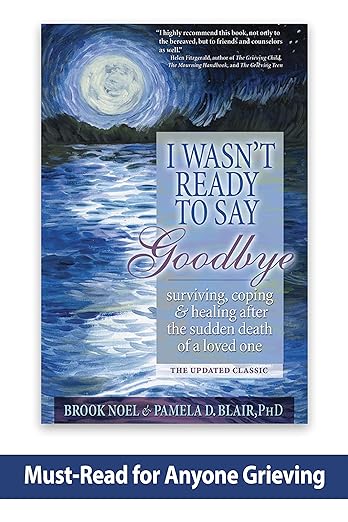
I Wasn’t Ready to Say Goodbye: Surviving, Coping and Healing After the Sudden Death of a Loved One, by Brook Noel and Pamela D. Blair, PhD
This guide offers solace and practical advice to individuals dealing with the sudden death of a loved one, addressing the unique challenges of sudden loss.
Books for Understanding the Impact of Suicide
This section features books that delve into the profound effects suicide has on individuals and communities. By exploring these narratives, readers can gain a deeper comprehension of the far-reaching consequences of suicide and the importance of compassionate support and awareness.
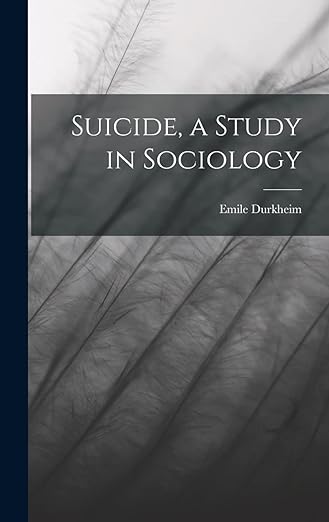
Suicide: A Study in Sociology, by Émile Durkheim
Durkheim’s classic sociological study provides a foundational understanding of the social factors that contribute to suicide, offering insights that remain relevant in today’s discussions on the subject.

No Time to Say Goodbye: Surviving The Suicide Of A Loved One, by Carla Fine
Fine’s book combines personal narratives with practical advice, offering support and understanding to those left behind after a suicide, addressing the complex emotions and questions that arise.
Books for Professionals and Caregivers
This collection offers professionals and caregivers valuable perspectives on the thought processes of individuals at risk for suicide and practical advice for supporting families dealing with such losses. Through these resources, caregivers can enhance their understanding and approach to providing effective and empathetic assistance.

Dying to Be Free: A Healing Guide for Families After a Suicide, by Beverly Cobain and Jean Larch
Written by a cousin of Kurt Cobain and a crisis intervention specialist, this book provides insights into the minds of suicide victims and offers guidance for families coping with this type of loss.

The Suicidal Mind, by Edwin S. Shneidman
Shneidman, a pioneer in suicide prevention, offers a profound exploration of the psychological aspects of suicide, providing valuable insights for therapists, counselors, and anyone trying to understand the suicidal mind.
Books Offering Diverse Perspectives on Suicide
This selection presents a variety of viewpoints on suicide, from personal narratives to cultural studies. By exploring these diverse perspectives, readers can broaden their understanding of the complexities surrounding suicide and the multiple factors that influence it.

An Unquiet Mind: A Memoir of Moods and Madness, by Kay Redfield Jamison
This memoir by a leading researcher in mood disorders, who herself has bipolar disorder, provides an insightful look into the world of mental health, blending personal narrative with professional observations.
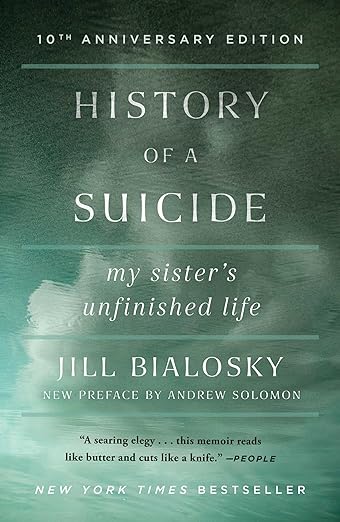
History of a Suicide: My Sister’s Unfinished Life, by Jill Bialosky
Bialosky combines memoir, literature, and psychology to explore the devastating impact her sister’s suicide had on her family, offering a poignant look at grief, love, and loss.
Novels Addressing Suicide and Its Aftermath
These novels dive right into the profound effects of suicide and how it touches the lives of those who remain. They bring stories to life, giving us a closer look at the emotional and psychological journeys that follow, helping readers connect and understand the complexities of suicide from a more personal perspective.

Forgive Me, Leonard Peacock, by Matthew Quick
This novel follows a day in the life of Leonard Peacock as he says goodbye to the four people who matter most to him, revealing his plans to commit suicide and the events that lead up to it.
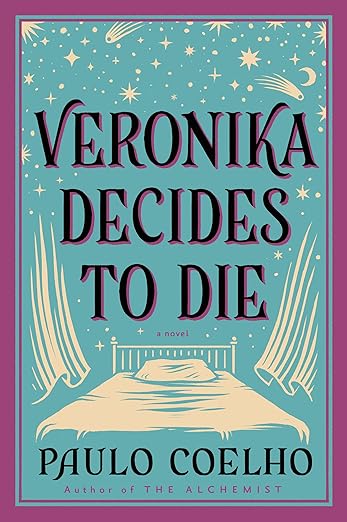
Veronika Decides to Die, by Paulo Coelho
Coelho’s novel tells the story of Veronika, a young woman who, after a failed suicide attempt, discovers a new perspective on life during her stay in a mental hospital.
Books for Finding Hope and Resilience
These books share stories and ideas about overcoming tough times and finding strength within. They inspire hope and show that, no matter what, you can get through difficult moments and come out stronger.
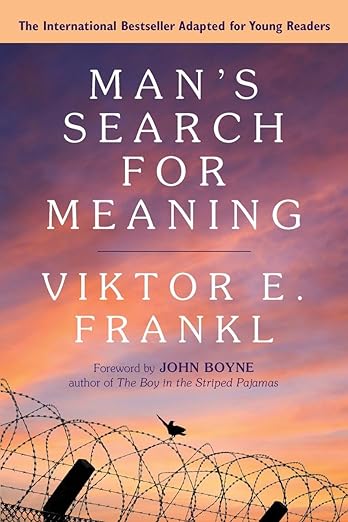
Man’s Search for Meaning, by Viktor E. Frankl
Frankl’s memoir of his time in Nazi death camps, combined with his psychotherapeutic method of finding purpose through suffering, offers profound insights into finding reasons to live even in the darkest times.

The Choice: Embrace the Possible, by Dr. Edith Eva Eger
A memoir by a Holocaust survivor and therapist, this book explores the power of choice in overcoming trauma and finding freedom from the past.
Books on Philosophical and Ethical Perspectives
These thought-provoking books dive into deep thoughts about life, challenges, and decisions. They get you thinking about the bigger picture and offer new perspectives on challenging issues, encouraging a deeper understanding of ourselves and the world around us.

The Myth of Sisyphus, by Albert Camus
In this philosophical essay, Camus uses the story of Sisyphus to explore the absurdity of life and the idea that the struggle itself toward the heights is enough to fill a man’s heart, offering a different perspective on the value of life.

Stay: A History of Suicide and the Philosophies Against It, by Jennifer Michael Hecht
Hecht argues against suicide from historical and philosophical perspectives, advocating for life in the face of despair and challenging the reader to reconsider the societal impact of suicide.
Conclusion
This collection of books offers insights into the many sides of suicide, from personal battles and feelings of isolation to its broader impact and more profound ethical questions. These works aim to provide comfort, understanding, and a sense of community for anyone affected by this issue. They highlight stories of overcoming adversity, finding inner strength, and the importance of support and empathy. Through diverse perspectives and real-life stories, these books encourage a better understanding of suicide and the power of resilience. Remember, help is always within reach, and you’re never alone.
If you or someone you know is dealing with thoughts of suicide, it’s essential to get help. Some therapists specialize in treating depression and hopelessness. They can guide you through challenging emotions and towards recovery.
If you’re thinking about suicide or worried about someone who might be, call the 988 Suicide & Crisis Lifeline or dial 911 in emergencies.

